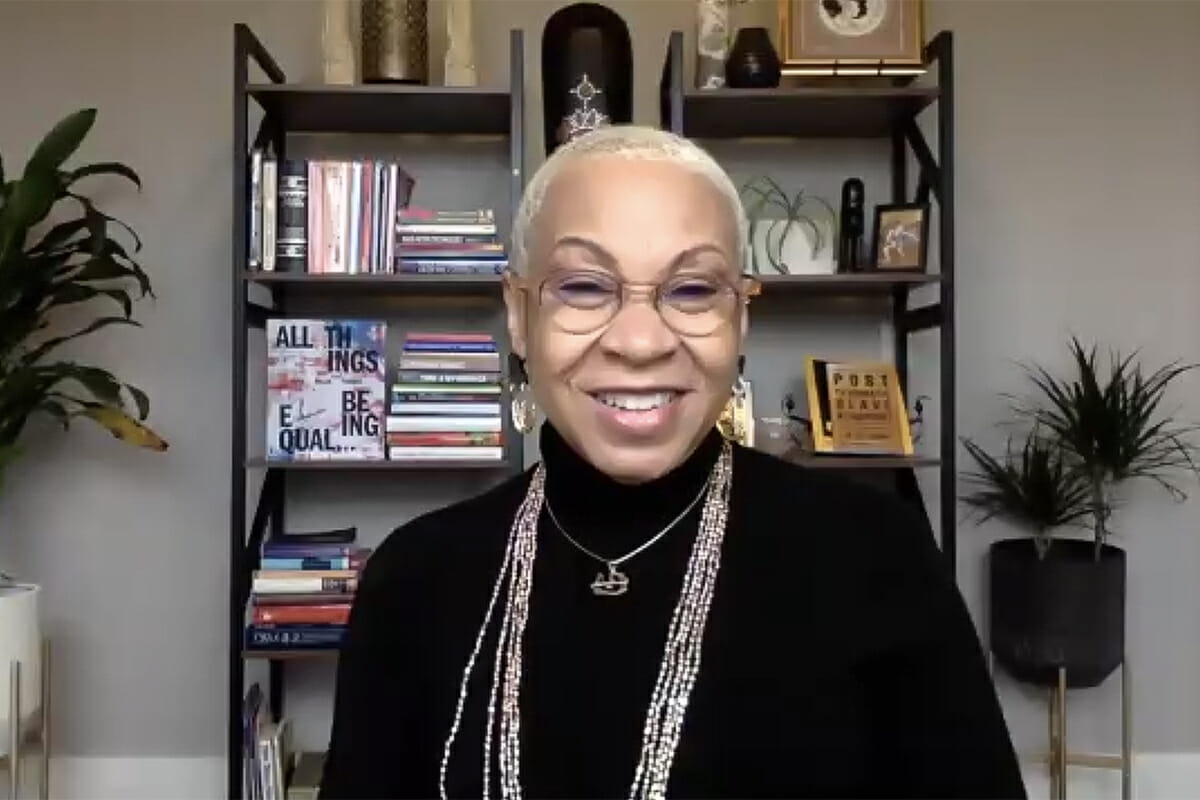Dr. Joy DeGruy, nationally and internationally renowned researcher and educator, and author of “Post Traumatic Slave Syndrome: America’s Enduring Legacy of Injury and Healing,” recently delivered the 2021 address for Maryville University’s annual Martin Luther King Jr. Celebration.
DeGruy spoke about the history of the American slave trade and subsequent discrimination against Black people. Understanding how the past influences the present is the path to healing, she said, and helps us eliminate non-productive attitudes, beliefs and behaviors.
DeGruy shared a series of photographs of Elmina Castle, the first European slave-trading post in sub-Saharan African. Upon leaving the castle, slaves boarded ships that would take them on the Middle Passage. Elmina housed luxury suites for the Europeans in the upper levels. The slave dungeons below were cramped and filthy. As a result of centuries of human excrement, the floor is now two feet higher than when it was built.
“It’s important for us to understand who paid for Black Americans, and how long and fiercely they fought, so we know upon whose shoulders they are standing,” she said. “I believe when people know better, they can do better.”
Her remarks also discussed how the Statue of Liberty was created to celebrate freed slaves, not immigrants. Ellis Island, the inspection station, didn’t open until six years after the statue was unveiled in 1886. An early model, circa 1870, shows Lady Liberty holding broken shackles in her left hand, an homage to the end of slavery. In the final statue, the broken chains have been moved to beneath her feet, hidden from view.
“At the root of every major institution in America is white supremacy,” DeGruy said. “People ask, ‘How do we fix these systems?’ But they aren’t broken; they were designed to produce these results. So we have to remove them and create new ones.”
That process begins with each of us, she said. “We have to do the work. We have to talk with our parents, our families, our children, our co-workers. We have to do something, wherever we are. We cannot sit back and wait for someone else to do it for us.”
